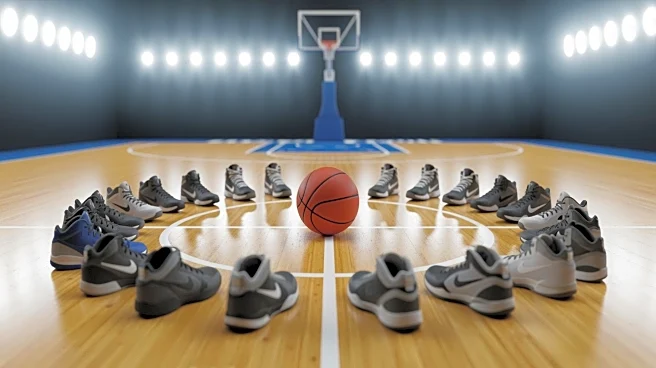What's Happening?
The Miami Heat have begun the NBA season with a surprising 7-4 record, placing them third in the Eastern Conference. This strong start comes after a tumultuous previous season where they traded away franchise
icon Jimmy Butler and exited the playoffs in the first round. Despite low expectations, the Heat have managed to impress, even without their leading scorer from last season, Tyler Herro, who is recovering from ankle surgery. Former NBA players Demarcus Cousins and Chandler Parsons have expressed confidence in the Heat's potential to challenge contending teams in the playoffs, citing the team's effective roster and playing style.
Why It's Important?
The Miami Heat's unexpected performance has significant implications for the NBA landscape. Their ability to perform well despite major roster changes and injuries suggests a strong organizational culture and adaptability. This could impact playoff dynamics, as the Heat may emerge as a formidable opponent for top-seeded teams. The team's resurgence also highlights the importance of strategic player management and development, which could influence other franchises' approaches to team building and player trades. Fans and stakeholders in the NBA will be closely watching the Heat's progress as they aim to capitalize on their early success.
What's Next?
As the season progresses, the Miami Heat will aim to maintain their momentum and secure a strong playoff position. The return of Tyler Herro from injury could further bolster their performance. The team will need to navigate upcoming games against competitive opponents to solidify their standing. Additionally, the Heat's management may explore strategic trades or adjustments to enhance their playoff readiness. The reactions from other teams and analysts will be crucial in shaping the narrative around the Heat's potential as a playoff contender.
Beyond the Headlines
The Miami Heat's current trajectory underscores the broader theme of resilience and strategic adaptation in professional sports. Their ability to overcome setbacks and exceed expectations may serve as a case study for sports management and coaching strategies. The cultural aspect of 'Heat Culture,' as mentioned by Chandler Parsons, reflects the intangible qualities that contribute to a team's success beyond mere talent. This could inspire discussions on the role of team culture in achieving long-term success in sports.









